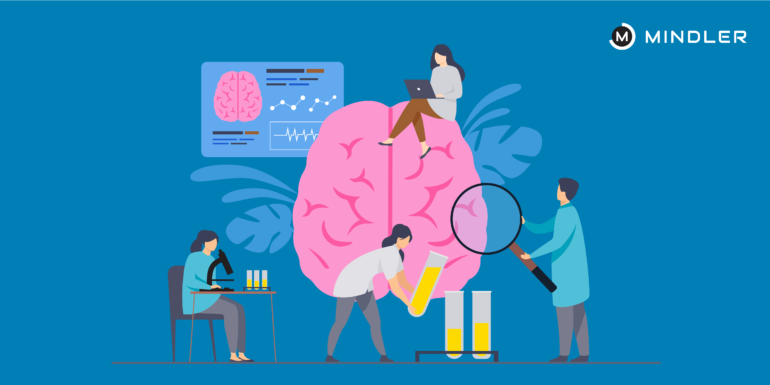The brain. Essentially a three-pound mass of jelly that is capable of piloting a complex biological system nearly 50 times its weight. It is one of the great enigmas of the universe: a miniaturized electrical storm encased in a bony cavity that can contemplate eternity, express poetry, push the frontiers of science, and birth philosophy.
Many find it alluring and devote decades of their life to the study of the nervous system and its vagaries. Luckily for those of us with a deep interest in neurosciences, there are numerous pathways that can be trodden if your goal is to make it your profession. Careers related to neuroscience are highly competitive but can be incredibly fulfilling. Whether is it being exposed to trending research topics in the medical domain, or making a career in the medical domain, the breadth of neuroscience covers it all.
Top Careers You Should be Looking at if You Are Interested in Neuroscience
1. Neurosurgery
One of the most demanding and most thrilling careers in the world, neurosurgery needs no introduction. Neurosurgeons, as the name suggests, primarily operate upon the brain, spinal cord, and nervous system to treat patients. They are a small percentage of highly specialized doctors who get to do things no other doctors can. It is not a path for the impatient, as it requires 6 years of additional surgical training after a 5 and a half year M.B.B.S. degree in India.
On the flip side, the job has its share of risks too. While nearly all surgeries are complicated procedures requiring expertise, it is exponentially more so for the brain and nervous system. A slip up of millimeters could cripple a patient forever or lead to death. They also work longer hours than most other professions in stressful environments.
2. Neurology
Neurology deals with the medical management of neurological conditions such as Parkinson’s disease, Alzheimer’s disease, stroke, and dementia, among others. To be a neurologist in India, you must first complete your M.B.B.S. and earn an M.D. in Internal Medicine, thereby becoming eligible to pursue a D.M. in Neurology.
Neurology can be a fascinating and immensely rewarding career, with new advancements in treatments and technology. The satisfaction of mitigating symptoms in patients, seeing long-term patients improve, and the academic aspect of neuroscience are all factors in favor of a career in neurology.
3. Psychiatry
While some may argue against placing psychiatry on a purely neuroscience-focused list, the reality could not be more different. It is essential for a psychiatrist to have profound knowledge of neurobiology as it forms the foundation of their management.
Psychiatrists treat patients of mental illness using a combination of behavioral and pharmacological therapy to alleviate patient symptoms. An M.D. in Psychiatry can be pursued after completion of M.B.B.S. and takes 3 years. With the increased focus on mental wellness in the world today, the stigma that once accompanied Psychiatry has diminished considerably. It is poised to be an essential career in the years to come.
4. Research in Neuroscience
The research domain in neuroscience is a good idea if one does not want to deal with the healthcare aspect of the aforementioned careers. To pursue research in neuroscience, one must obtain an undergraduate degree in neuroscience or life sciences, move up to an M.Sc in neuroscience and then apply to institutions looking for research fellows or project assistants.
One can then opt to do a Ph.D. in any of the various specializations in neuroscience such as cognitive neuroscience, behavioural neuroscience, molecular neuroscience, etc. One may also choose to pursue neuroscience research abroad or teach at universities.
Typically, the day-to-day responsibilities of a neuroscientist includes preparing tissue and cell samples, developing research and pharmacological plans, and staying up to date with the latest knowledge in the domain of neuroscience. A deep interest in research and a patient temperament are must-have traits for those considering a profession as a neuroscientist. The author feels duty-bound to bring up the excellent lectures delivered by Dr. V.S. Ramachandran, a cognitive neuroscientist, which is available on YouTube for any students that might be interested.
5. Neuroengineering
With work on a brain-machine interface gaining more and more momentum over the past few years, the domain of neuro-engineering could see the next scientific and technological explosion in the neuroscience space.
Neuroengineering deals with the usage of electronics to influence brain chemistry. Examples of this are already in use in modern medicine today, whether it is deep brain stimulation for the treatment of Parkinson’s disease, or transcranial magnetic stimulation to help relieve symptoms of depression. However, the ultimate goal of neuroengineering is loftier.
Neuroscientists predict that in time it will not be outside the realms of probability for neuroengineering advances to treat conditions such as paralysis, blindness, Alzheimer’s, and many other conditions that were hitherto considered untreatable. Further, research is ongoing to invent implantable brain-machine interfaces that can help one control the computer merely by thinking of it!
While it is yet to gain any real impetus in India, there are numerous opportunities abroad to embark on a career in neuroengineering.
Conclusion
“I am a brain, Watson. The rest of me is a mere appendix. Therefore, it is the brain I must consider,” remarks Sherlock Holmes in The Mazarin Stone. It is a sentiment most students interested in making a career out of the neurosciences would agree with. Perhaps you are smitten by the expanse of what is yet to be discovered in the field or simply find joy in consuming content related to it. If so, there are many career routes you can explore to turn your interest into your vocation.
The good news is that the world will always need more people in the neurosciences domain. That said, it must be stressed that many careers in this field are challenging, and require immense hard work and diligence to be successful.
To know more about careers related to neuroscience, reach out to one of our experts for career counselling online.








